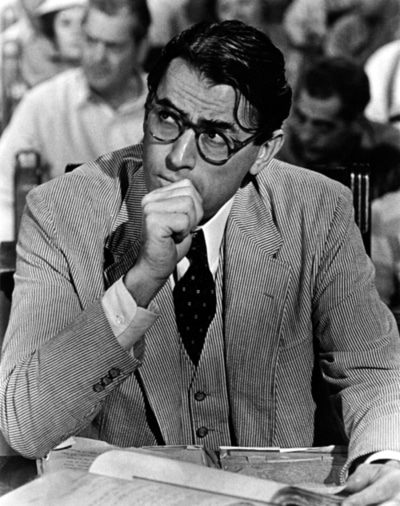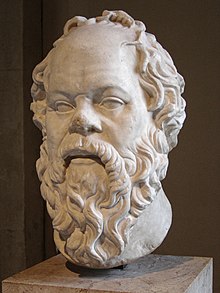https://sites.google.com/a/mbusdapps.org/amp6/literary-analysis/mockingbirds–scout-jem
First Impressions
To Kill a Mockingbird is a classic tale that takes place in the fictional Maycomb County, Alabama, during the 1930’s. The opening nine chapters of the book were much more light hearted than I expected going in.
The story is told through the perspective of Jean Louise “Scout” Finch, a small-town girl who loves long summer days and getting tied up in adventures with her older brother, Jem. During the first few chapters, the reader gets a feel for Scout’s world; she leads us through her elementary school troubles, backyard shenanigans, and a playground love story – nostalgic moments that hold a timeless familiarity to suburban kids everywhere.
This nostalgic feel is cleverly juxtaposed with the confusion that comes with growing up, a confusion that serves as a gateway to the central themes of the story. Every once and a while, the reader is shown a glimpse beyond the facade of Scout’s playful childhood and into the absurd reality that is adult life. These glimpses reveal faults in humanity that children take note of at first glance only to “grow up” and accept the world’s problems with a numb apathy. Seeing the story through Scout’s eyes is wholly important to its themes because of this, making you stop and question why things are the way they are right when Scout does.
More on this later, but first, an introduction to Atticus.
Atticus

https://www.artofmanliness.com/2011/02/02/lessons-in-manliness-from-atticus-finch/
Atticus Finch is the father of Jem and Scout Finch, and a key part of the story’s main conflict. He is a criminal defense lawyer who can be boring to his kids but loving and wise nonetheless.
So what makes him so important? Atticus has a big court case coming up, and his job is to side with a black man. Keep in mind that this story takes place in a small Alabama town in the 1930’s. Because of this, practically every other chapter has the reader meeting someone new who hates Atticus for the same dumb reason, and isn’t afraid to say so in front of his kids.
The most rambunctious of these people is Scout’s cousin, Francis. During a Christmas gathering, Francis expresses his dislike of Atticus by calling him a “nigger-lover” over and over until he earns a righteous punch in the face from Scout. At first, Francis successfully frames Scout as the perpetrator, taking advantage of her current outcast negro-loving status. Later though, away from the bias of the rest of the family, Uncle Jack and Atticus find Scout to be innocent, and this is Atticus’s reaction to the whole issue:
“You know what’s going to happen as well as I do, Jack, and I hope and pray I can get Jem and Scout through it without bitterness, and most of all, without catching Maycomb’s usual disease. Why reasonable people go stark raving mad when anything involving a Negro comes up, is something I don’t pretend to understand… I just hope that Jem and Scout come to me for their answers instead of listening to the town.”
At the end of Chapter Nine, Atticus reveals himself to be a clear-minded, nonconforming individual and a genuine, caring father at the same time. He, unlike most people his age, has retained a childlike sense of right and wrong, and hopes the same for his children. Perhaps this is why Atticus is a criminal defense lawyer: to protect the outcasts and rejects that deserve protection.
This isn’t the first sign of wisdom Atticus shows, either. Much earlier, in Chapter Three, he introduces himself as the moral compass of the story with this nugget:
“You never really understand a person until you consider things from his point of view . . . until you climb into his skin and walk around in it.”
Philosopher William James explains this idea best in his essay On A Certain Blindness in Human Beings. Here’s the basic idea:
Humans naturally care most about what is right in front of them: family, friends, work, passions, etc. Everyone lives in his/her own little world, constructed out of the information displayed all around them. When someone’s world collides with another’s and threatens to disrupt his/her reality, prejudice is born. A closed mind is a comfortable mind, so the most comfortable thing to do when introduced to new information that undermines one’s understanding of the world is to reject it.
When rejection is the path of least resistance, prejudice becomes free to grow, fueled by a mob mentality. Next thing you know, you’ve got 1930’s Alabama.
Most people in Maycomb County accept prejudice with open arms, happy to live in their ignorant little world. But not Atticus. He is stronger than to conform, because as a lawyer, he is never quick to judge.
Socratic Seminar

https://en.wikipedia.org/wiki/Socrates
Every week, my class holds an edgy student-only discussion called a Socratic Seminar about what we’ve read. Some weeks are full of insight, while others are dull. This week was the latter. The issue wasn’t with the material we were talking about; now that I’ve taken some time to reflect, I have plenty to say about To Kill a Mockingbird. I think our main problem was that we’re just really bad question-makers sometimes. Most people in the class (including yours truly) did not take advantage of the time we were given to develop solid, meaningful questions, and we ended up asking stuff like “how does it relate to killing mockingbirds” and “why is Scout a tomboy”.
Next week, I’ll make sure to go into the discussion with a few well-crafted prompts to get everyone thinking.
Conclusion
So far, I’ve loved reading To Kill a Mockingbird. It brings me back to the worry-free days of elementary school while simultaneously raising questions about the state of society. Why are we prejudiced? What can we learn about prejudice from children? And, most importantly, how can we use this knowledge to end prejudice?
